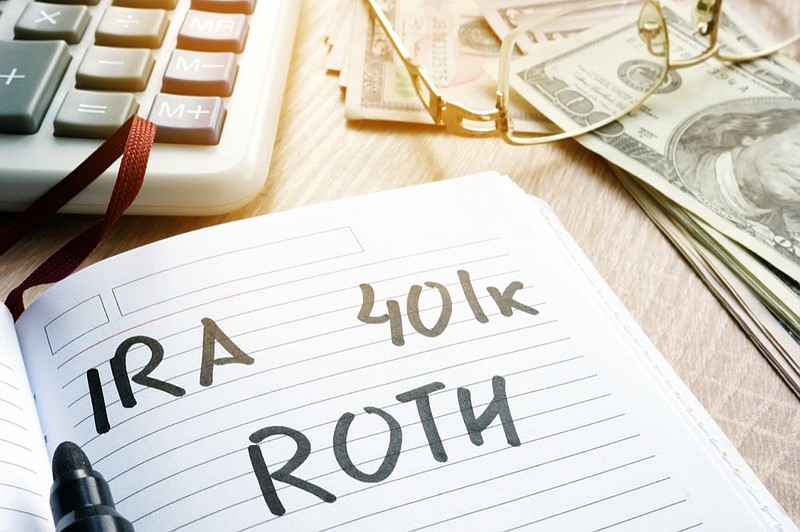"Learn from the mistakes of others. You can't live long enough to make them all yourself." – Eleanor Roosevelt
The long and steady demise of traditional pension plans in the U.S. private sector has given rise to a surge in assets held by participant-directed retirement accounts like 401(k)s and IRA accounts. According to the Investment Company Institute, Americans held $13.2 trillion in IRAs and $10.4 trillion in defined contribution retirement assets as of March 31. Aside from the responsibility to direct the investments, account holders have another critically important duty that all too often gets messed up: naming a beneficiary. Forgetting or fouling up this simple chore can have unexpected and sometimes unfortunate consequences.
Retirement accounts fall into a category of assets that pass to heirs directly outside of the will and are not subject to probate. That is, if the paperwork is in order. When enrolling in a retirement plan or establishing an IRA account, the holder should stipulate the person or persons who should receive the assets upon their death, known as the beneficiaries. If done correctly, the assets pass seamlessly to the intended heirs without the time and expense of probate and retain some degree of their tax-advantaged status after the transfer. If not done correctly or neglected, bad things can, and too often do happen. Here are some of the most common mistakes.
Failing to name a beneficiary. This is the most basic and ironically the most frequent mistake investors make when enrolling in their employer's plan or rolling over their plan assets to an IRA. According to retirement plan administrator Asensus, over one third of all IRA death claims submitted for processing lack a named beneficiary. In such cases, instead of transmitting directly to heirs, the account flows into the decedent's estate, where all kinds of mischief can ensue.
The retirement assets are now subject to the dictates of the will and must be probated, at often significant cost and delay. In addition, while an inherited IRA with a properly identified beneficiary can generally be distributed over 10 years, the maximum window in an estate shrinks to five years, and the tax rate is often much higher for the estate. Furthermore, the IRA or 401(k) money is now available to creditors of the estate. And until the account is fully distributed, the estate remains open and must file tax returns. Oh, and if you have no will, the state decides who gets the money. Oops.
Failing to name contingent beneficiaries. Getting the beneficiary right is key, but what if both the holder and the beneficiary die simultaneously? In this event, any "contingent" or backup beneficiaries named on the account step in to receive the assets as directed. The holder may specify what percentage goes to each contingent, as many as they like. Failing to name contingents causes the account to pass through the estate as if no beneficiary had been named if the primary beneficiary is also deceased.
Forgetting to update beneficiaries after major life events. Divorce happens. But sometimes, account holders or plan participants forget to update their beneficiary designation, leading to potentially interesting outcomes. The U.S. Supreme Court has ruled that the beneficiary listed on any qualified plan assets under ERISA (company contribution plans) is entitled to the loot even if that person is no longer married to the decedent. Thanks for the new Lexus. As for IRA accounts, state law dictates what happens after divorce, and in some states the divorce decree nullifies the prior designation. But even then, without a new beneficiary designation, the accounts flow to the estate as discussed above.
Naming a minor or young adult as beneficiary. Most states will not allow minors to inherit substantial assets without oversight. That means that there will likely need to be a conservator named by a court, at substantial expense, to supervise until the age of majority. At that point (18 or 21 in various states), Junior gets the cash and is free to sink the entire amount into Bitcoin. If it is your wish that a minor should receive a significant amount, seek the advice of an estate attorney, who may advise a trust account to allow more control over the distribution after you're gone.
As with any significant financial consideration, it is important to consult with trusted counsel to assist in getting it right. Competent financial advisors will assist you (read "badger") in getting the proper beneficiary designations recorded and should keep in touch regarding any significant life changes that may require revisiting the designations. The birth of additional children, for example, is sometimes overlooked in the beneficiary list.
You should also integrate your beneficiary designations with any broader estate plan considerations. For example, some complex situations or special needs situations may call for designating the estate or a trust as beneficiary, but these are relatively rare and require specialized expertise.
We may not live long enough to make every mistake, but by definition, we are all subject to this one. Here's to learning from others.
Christopher A. Hopkins is a chartered financial analyst (CFA) and co-founder of Apogee Wealth Partners LLC.
